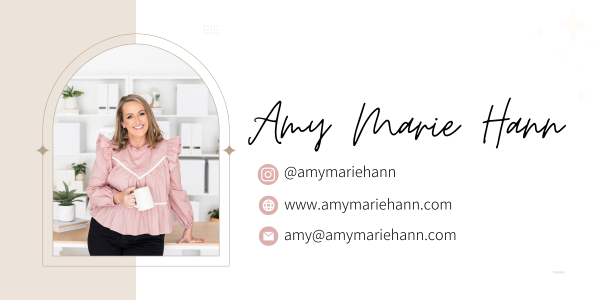Behind the Mask: How Moms with ADHD Hide Their True Selves

For many friends and family, an ADHD diagnosis can come as a surprise because we’ve become experts at masking our struggles. We’ve gotten so good at it that we don’t even realize the full extent of our challenges until we allow ourselves to put down the mask and start living authentically.
What is Masking?
Masking is when we hide our unique challenges and quirks to appear more "normal" to the world around us. We do this to fit in and protect ourselves from rejection. Many people with ADHD are highly sensitive to rejection, whether real or perceived, so we become experts at manipulating how others see us to avoid it.
Experts estimate that children with ADHD receive up to 20,000 more negative comments and corrections by age 10 than their neurotypical peers. From an early age, we learn that many of our natural impulses are "wrong" or disruptive, and we internalize the idea that we should suppress them. Instead of expressing our true selves, we learn to mask by mimicking others.
I was diagnosed with ADHD as a child in the mid-80s, but I spent most of my life masking. I thought ADHD was just a school problem, not realizing how much it affected my relationships and daily life. At 43, I’m still learning to embrace my authentic ADHD self and discovering ways I’ve masked in the past.
Motherhood brought a whole new set of masking challenges. Below are a few examples of how masking has shown up in my life and the lives of women I work with through Master the Mundane.
Examples of Masking in Motherhood:
Overcompensating: Creating overly complex organization systems and buying the latest planners, even though maintaining these systems never works long-term. This is often a way to hide struggles with planning and organization.
Excessive Cleaning: Only inviting people over after obsessively cleaning your home to hide disorganization and the struggle to maintain a clean space.
Unhealthy Coping: Drinking or eating excessively in social situations to mask discomfort with small talk, social anxiety, or overstimulation. This might feel more socially acceptable than expressing your true needs but often leads to internal shame.
Mentally Rehearsing Conversations: Constantly rehearsing conversations or situations to hide social anxiety or difficulties processing verbal information.
Focus on Appearance: Meticulously following trends in fashion or home decor to hide inner chaos or struggles with executive functioning.
Trying to Be Supermom: Saying "yes" to everything and overcommitting to mask struggles at home and overcompensate for perceived shortcomings.
Keeping Your Distance: Not asking for help from friends or a partner to mask difficulties with managing details and scheduling. This often leads to burnout.
Faking It to Fit In: Pretending to enjoy activities and events you don’t like to fit in with others, masking sensory sensitivities or unique preferences.
Pretending to Pay Attention: Nodding and smiling during conversations while completely checked out to hide inattention and distraction.
Masking and Perfectionism
Earlier versions of myself would look at this list and think it was normal—just how moms live. I expected myself to be perfectly put together and didn’t see what was wrong with striving for perfection.
Perfectionism is incredibly common in women with ADHD. There’s a stereotype that women with ADHD are like Pig Pen from Charlie Brown—chaotic, disorganized, and messy. But many women with ADHD appear "put together." I talk to these women every day, and I used to be one of them. Despite feeling like a failure, I didn’t look like one because I was putting in so much effort to maintain the illusion.
I volunteered for everything to earn my "good mom" badge. I attended social events that bored me to tears just to fit in with the "fun moms." I drank excessively to quiet my internal hyperactivity and need for depth. I overextended myself at the expense of my family and self-care.
Masking and perfectionism are lonely, exhausting, and unproductive. Masking was my way of playing small. Yes, I have ADHD, but learning to embrace my quirks has allowed me to live my unique purpose.
The Cost of Masking and Perfectionism
Masking is Exhausting: Hiding takes energy. The mental gymnastics of rehearsing and suppressing your natural inclinations are exhausting. Eventually, it becomes unsustainable. When you stop masking, you’ll have more energy to focus on what truly matters.
Masking Hides Your Gifts: One of the greatest gifts of ADHD is intuition. Once you tap into it, you have an incredible sense of knowing and problem-solving. Masking hides this gift, favoring what’s more acceptable to others.
Masking is Lonely: Our deepest need is to be known and loved. When you hide your true self, no one can really know you. While masking might protect you from rejection, it also keeps you from experiencing the joy of being fully seen and understood.
Masking is Playing Small: You weren’t meant to fit in. Embracing your uniqueness, though uncomfortable, leads to growth and fulfillment. The world benefits when you step into your full creative capacity.
Masking is Modeled for Your Kids: If your kids see different versions of you at home and in public, they’ll learn to hide themselves too. How we live has a bigger impact on our kids than what we say. If you want your kids to feel free to be themselves, it starts with you.
How to Stop Masking
Choosing authenticity over masking is an ongoing process. Here’s what has helped me:
Start Small: I started by sharing my random interests without judgment. For example, I once spent hours looking at house plans on Pinterest for no reason. Gradually, sharing these quirks helped me open up more about my inner life.
Therapy: Therapy has been invaluable in helping me articulate my thoughts and feelings. It’s been a process, but learning to connect with my emotions has made a huge difference.
Create Margin: After years of masking, I hit a wall of burnout. To live more authentically, I had to create space for self-reflection and growth. Developing systems and routines freed up energy to do this inner work.
Community: Connecting with women who understand my struggles has been transformative. I started with ADHD Facebook groups and podcasts, but now I lean on the Master the Mundane community for support and insight.
Choose Wisely: I’ve become more selective about the spaces I enter. There are still situations where I feel the urge to mask, but now I choose environments where I feel free to be myself. I no longer feel the need to fit in or seek superficial validation.
You are worthy of being fully known.
If you’re ready to end the overwhelm and burnout, and find a space where you can be understood and accepted, I invite you to join Master the Mundane. Yes, we’ll help you create systems and routines to manage your daily life—but it’s so much more than that.
Join Master the Mundane
Cheering you on as you share your authentic self with the world around you!
Best,
Amy








